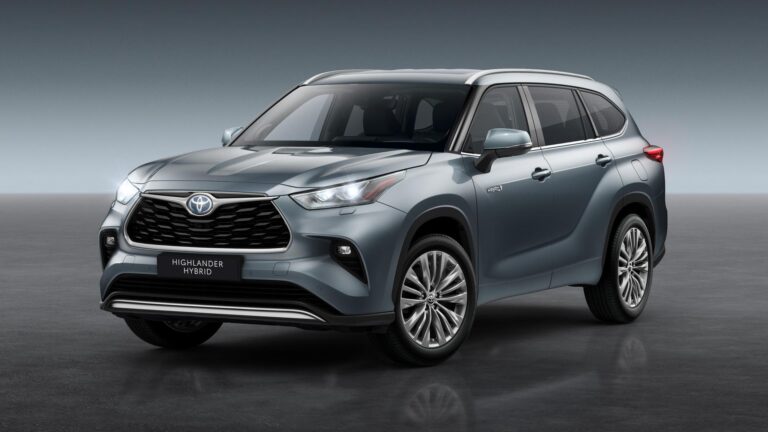As Tokyo grapples with mounting pressures from escalating trade tariffs, Japan’s premier automotive event is broadening its horizons beyond the traditional strongholds of Toyota, Honda, and Nissan. The Japan Mobility Show, long dominated by the country’s automotive giants, is now showcasing a more diverse array of manufacturers and innovative mobility solutions. This shift reflects a strategic response to the evolving global trade landscape and domestic market challenges, signaling a new chapter in Japan’s automotive industry amid increasing economic uncertainty.
Tokyo Grapples with Tariff Pressures Impacting Automotive Giants
The ripple effects of escalating tariffs have shaken the foundations of Japan’s automotive industry, traditionally dominated by stalwarts like Toyota, Honda, and Nissan. As external trade pressures mount, these giants are recalibrating strategies to mitigate cost impacts and maintain global competitiveness. Meanwhile, the Japan Mobility Show emerges as a pivotal platform, spotlighting not only the big three but also up-and-coming manufacturers and innovative startups seeking to rewrite Japan’s automotive narrative.
Industry insiders highlight a diverse lineup at this year’s show, reflecting broader efforts to diversify Japan’s mobility ecosystem amid tariff-induced uncertainty. Participants include electric vehicle (EV) innovators, autonomous tech firms, and parts suppliers adapting to fluctuating import duties. Below is a snapshot of key categories gaining traction at the event:
- EV innovators: Smaller-scale manufacturers accelerating battery tech advancements
- Autonomous systems: Startups developing cutting-edge AI for driverless cars
- Parts suppliers: Firms pivoting to local sourcing to counter tariff hikes
| Company Type | Tariff Impact | Strategic Response |
|---|---|---|
| Major Automakers | High | Cost optimization & market diversification |
| EV Startups | Medium | Focus on battery innovation & collaboration |
| Parts Suppliers | Moderate | Shift to local component production |
| Autonomous Tech Firms | Low | Investment in R&D and global partnerships |
Japan Mobility Show Spotlights Emerging Players and Innovation Beyond Established Brands
At this year’s Japan Mobility Show, the spotlight firmly shifts to the rising stars reshaping Japan’s automotive future. While industry giants like Toyota, Honda, and Nissan maintain their presence, increasing tariffs and global competition have amplified interest in nimble entrants and startups pushing the boundaries of innovation. From electric vehicle startups pioneering novel battery technologies to mobility-as-a-service providers integrating AI-driven urban transport solutions, the event has become a melting pot of fresh ideas and groundbreaking technologies. Visitors witnessed cutting-edge demonstrations featuring autonomous shuttles, hydrogen fuel cell innovations, and advanced mobility robotics designed to address urban congestion and environmental challenges.
The show also revealed a notable shift in investment and collaboration strategies. Established automakers are broadening their partnerships with tech firms and venture capitalists, signaling a diversification away from traditional manufacturing reliance. Highlighted below is a snapshot of key emerging players making waves this year:
| Company | Focus Area | Innovative Highlight |
|---|---|---|
| NeuMobility | Electric Micro-Mobility | Compact foldable EVs with ultrafast charging |
| H2Transit | Hydrogen Fuel Systems | Zero-emission buses for urban routes |
| AI Commuter | Mobility-as-a-Service | AI-optimized shared transport networks |
| RoboRoll | Autonomous Delivery Robots | Last-mile cargo robots with adaptive navigation |
This renewed ecosystem suggests Japan’s automotive landscape is evolving rapidly, driven by small innovators and collaborative ventures that might soon challenge the dominance of traditional manufacturers both domestically and internationally.
Strategic Recommendations for Navigating Market Shifts and Expanding Global Automotive Influence
In response to escalating tariffs that are straining the Tokyo automotive landscape, industry leaders must adopt adaptive strategies that extend beyond traditional giants like Toyota, Honda, and Nissan. Companies are encouraged to diversify their supply chains, invest in emerging markets, and foster partnerships that leverage regional strengths. Emphasizing innovation in electric vehicles (EVs), autonomous technologies, and sustainable materials can position Japanese automakers as global pioneers, mitigating the impact of trade barriers through agility and creativity.
Key recommendations for automotive executives include:
- Expanding Regional Alliances: Collaborate with manufacturers and startups across Southeast Asia, Europe, and North America to share technology and market insights.
- Accelerating R&D in Next-Gen Tech: Prioritize funding for EVs, AI-driven mobility solutions, and energy-efficient designs to capture evolving consumer demand.
- Enhancing Supply Chain Resilience: Develop multi-sourced components and diversify manufacturing hubs to reduce tariff exposure and logistical bottlenecks.
| Strategic Focus | Expected Impact | Priority Timeline |
|---|---|---|
| Regional Partnerships | Market access expansion | 6-12 months |
| Next-Gen R&D | Product innovation leadership | 1-3 years |
| Supply Chain Diversification | Cost and risk reduction | 3-6 months |
Future Outlook
As Tokyo navigates the complex challenges posed by escalating tariffs, the Japan Mobility Show’s expanded focus beyond traditional giants like Toyota, Honda, and Nissan underscores a pivotal shift in the industry. By spotlighting emerging players and innovative technologies, the event reflects Japan’s broader effort to diversify and adapt in an increasingly competitive global market. As the nation accelerates toward a more inclusive and forward-looking automotive future, the mobility show stands as a barometer of both resilience and transformation within Japan’s industry landscape.




